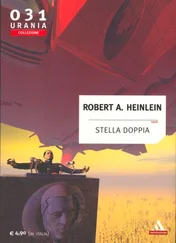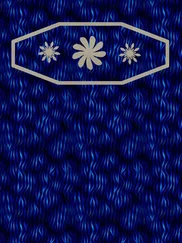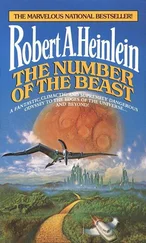Robert Heinlein - Expanded Universe
Здесь есть возможность читать онлайн «Robert Heinlein - Expanded Universe» весь текст электронной книги совершенно бесплатно (целиком полную версию без сокращений). В некоторых случаях можно слушать аудио, скачать через торрент в формате fb2 и присутствует краткое содержание. Жанр: Фантастика и фэнтези, на английском языке. Описание произведения, (предисловие) а так же отзывы посетителей доступны на портале библиотеки ЛибКат.
- Название:Expanded Universe
- Автор:
- Жанр:
- Год:неизвестен
- ISBN:нет данных
- Рейтинг книги:4 / 5. Голосов: 1
-
Избранное:Добавить в избранное
- Отзывы:
-
Ваша оценка:
- 80
- 1
- 2
- 3
- 4
- 5
Expanded Universe: краткое содержание, описание и аннотация
Предлагаем к чтению аннотацию, описание, краткое содержание или предисловие (зависит от того, что написал сам автор книги «Expanded Universe»). Если вы не нашли необходимую информацию о книге — напишите в комментариях, мы постараемся отыскать её.
Expanded Universe — читать онлайн бесплатно полную книгу (весь текст) целиком
Ниже представлен текст книги, разбитый по страницам. Система сохранения места последней прочитанной страницы, позволяет с удобством читать онлайн бесплатно книгу «Expanded Universe», без необходимости каждый раз заново искать на чём Вы остановились. Поставьте закладку, и сможете в любой момент перейти на страницу, на которой закончили чтение.
Интервал:
Закладка:
The only connection between Pravda and fact lay in the existence of an American plane down on Soviet soil. The locale of the incident shifted 1,500 miles. The plane is "shot down" at an extremely high altitude (if true then those exhibits in Gorky Park were as phony as K's promises of safety to Nagy and Pal Maleter). No mention at all is made of four long years of humiliating defeat. Pravda suppresses the truth and turns the incident into a triumph of Soviet arms. The Soviet newspapers and radio stations, all state - owned, spout the same line. All during this period the Voice of America was jammed. K. made certain his serfs heard nothing but the Pravda.
We learned it by being ordered - not requested - to report to the Alma Ata office of the Director of Intourist. There we were given a long, very stern, but fatherly, lecture on the aggressive misbehavior of our government, a lecture that included a careful recital of the U - 2 Pravda.
Once I understood, I did something no American should ever do in the Soviet Union. I lost my temper completely. I out - shouted the director on the subject of American grievances against the Soviet Union. My red - headed wife most ably supported me by scorching him about Soviet slave labor camps, naming each one by name, pointing out their location to him on the big map of the Soviet Union which hung back of his desk, and telling him how many people had died in them - including Americans.
We stomped out of his office, went to our room and gave way to the shakes. I had lost my temper and with it my judgment and thereby endangered not merely myself but my wife. I had forgotten that I was not protected by our Bill of Rights, that I was not free to bawl out a public official with impunity - that I was more than 2,000 miles from any possible help.
Communism has no concern for the individual. The Soviets have liquidated some 20 to 30 millions of their own in "building socialism." They kept after Trotsky until they got him. They murdered a schoolmate of mine between stations on a train in Western Europe and dumped his body. Terror and death are as fixed a part of their tactics as is distortion of the truth. Their present gang boss is the "liberator" of Budapest, the "pacifier" of the Ukraine - a comic butcher personally responsible for the deaths of millions of innocent people.
All this I knew. I knew, too, that our own policies had softened beyond recognition since the day when Teddy Roosevelt demanded the return of an American citizen alive - or the man who grabbed him, dead - and made his threat stick. In these present sorry days no American citizen abroad can count on protection from our State Department. We have even voluntarily surrendered our own soldier's Constitutional rights, drafted and sent willy - nilly to foreign lands. We still permit the Red Chinese to hold prisoner hundreds of our boys captured nearly ten years ago in Korea. We do nothing about it. I did have the cold comfort of knowing that I had behaved as a free man, an American. I cherished the thought. But I could not honestly pat myself on the back. My anger had been a reflex, not courage. Pride would not be much to chew on if it had got my wife and myself into a Soviet slave labor camp.
I began to listen for that knock on the door, the one you read about in Darkness at Noon, the knock that means your next address may be Vorkuta or Karaganda. The address doesn't matter. You are never, never going to receive mail.
My fears were not groundless. I'd read Philip Wylie's The Innocent Ambassadors and I knew what had happened to his brother. I vividly recalled Kravchenko's I Chose Freedom.
The knock never came because the political climate engendered by the new Pravda was "more - in - sorrow than - in - anger." The next morning, May 6, we were again ordered to report to the Director's office. We had decided to brazen it out. We refused to go. Presently, we were allowed to catch a plane for Tashkent.
Pravda lasted 12 days, until K. shattered the Summit and revealed a new Pravda.
We arrived in Leningrad just as the news reached there that the Summit had failed and that President Eisenhower had cancelled his proposed trip to the USSR and that Khrushchev was returning to Moscow via East Berlin.
The climate suddenly turned very chilly.
A month earlier, in Moscow, we had been picked up by two Russians the very first time we went out on the street. One was a technical translator; the other, a lady, was a museum curator. They were very friendly and stayed with us almost three hours, asking questions about the U.S. and inviting questions about the Soviet Union. This happened to us daily thereafter; we were always making casual acquaintance with Soviet citizens, on the Street, in parks, in restaurants, during intermissions at the theatre, everywhere. They were always curious about America, very friendly and extremely polite. This attitude on the part of individual Soviet citizens toward individual Americans continued throughout the first Pravda, ending May 6. It lessened slightly during the "more - in - sorrow" second Pravda.
K's Paris news conference set up a new Pravda. From the time we reached Leningrad until we left for Helsinki, Finland, not one Soviet citizen other than Intourist employees - who had to deal with us professionally - spoke to us under any circumstances. Not one.
In dealing with Intourist it is always difficult to tell whether one's frustrations arise from horrendous red tape or from intentional obstructionism. In Leningrad it at once became clear that Intourist now just did not want to give service. Even the porter who took up our bags made trouble.
Our first afternoon we were scheduled to visit the Hermitage, one of the world's great art museums. The tour had been set with Intourist for that particular afternoon before we left the States.
At the appointed time our guide (you have to have one) had not arranged for a car. After awhile it whisked up and the guide said, "Now we will visit the stadium."
We said that we wanted to visit the Hermitage, as scheduled. The guide told us that the Hermitage was closed. We asked to be taken to another museum (Leningrad has many). We explained that we were not interested in seeing another stadium.
We visited the stadium.
That is all Intourist permitted us to see that afternoon.
When we got back to the hotel we found someone in our room, as always in Leningrad. Since maid service in Intourist hotels varies from non - existent to very ubiquitous we did not at once conclude that we were being intentionally inconvenienced. But one afternoon we found six men in our room, busy tearing out all the pipes and the question of intent became academic. A hotel room with its plumbing torn up and its floor littered with pipes and bits of wood and plaster is only slightly better than no hotel room at all.
We went to the ballet once in Leningrad. Intermissions are very long in Soviet theatres, about half an hour, and on earlier occasions these had been our most fruitful opportunity for meeting Russians.
Not now, not after K's Paris Pravda. No one spoke to us. No Russian would even meet our eyes as we strolled past. The only personal attention we received that evening at the ballet was an unmistakably intentional elbow jab in the ribs from a Russian major in uniform. Be - Kind - To - Americans Week had adjourned, sine die.
How can the attitudes of 200 million people be switched on and off like a light bulb? How can one set of facts be made to produce three widely differing Pravda’s? By complete control of all communications from the cradle to the grave.
Almost all Soviet women work. Their babies are placed in kindergartens at an average age of 57 days, so we were told, and what we saw supported the allegation. We visited several kindergartens, on collective farms and in factories. By the posted schedules, these babies spend 131/2 hours each day in kindergarten - they are with their mothers for perhaps an hour before bedtime.
Читать дальшеИнтервал:
Закладка:
Похожие книги на «Expanded Universe»
Представляем Вашему вниманию похожие книги на «Expanded Universe» списком для выбора. Мы отобрали схожую по названию и смыслу литературу в надежде предоставить читателям больше вариантов отыскать новые, интересные, ещё непрочитанные произведения.
Обсуждение, отзывы о книге «Expanded Universe» и просто собственные мнения читателей. Оставьте ваши комментарии, напишите, что Вы думаете о произведении, его смысле или главных героях. Укажите что конкретно понравилось, а что нет, и почему Вы так считаете.











